- Voiture
- Messerschmitt / FMR
- Messerschmitt / FMR KR (5 offres)
Messerschmitt Kabinenroller (KR) Classic Cars for Sale
The Messerschmitt Kabinenroller (KR) embodies post-war engineering on three wheels. Known for their distinctive bubble-shaped Plexiglas cabin, these iconic microcars were primarily constructed in Germany during the 1950s as an alternative transportation solution. With a narrow design, the KR models like the KR175 and KR200 are perfect for tight streets, offering impressive fuel efficiency and an innovative tandem seat arrangement. The KR200, the most famous of this series, offers more power and improved aerodynamics compared to its predecessors.
Résultats de la recherche
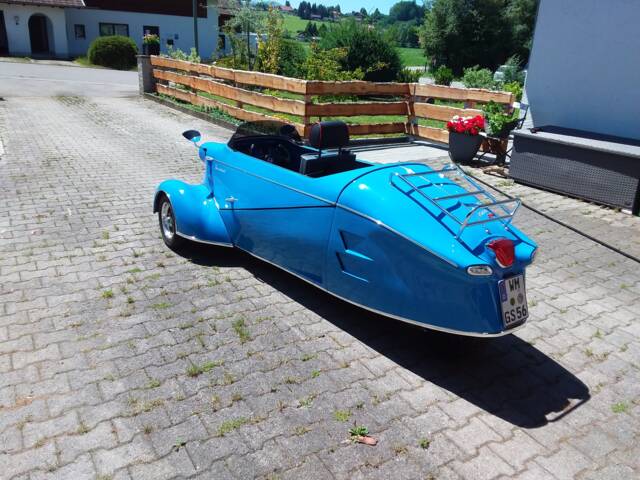
1962 | Messerschmitt / FMR KR 202 Sport
Nachbau von 2022 von den Messerschmitt Werken
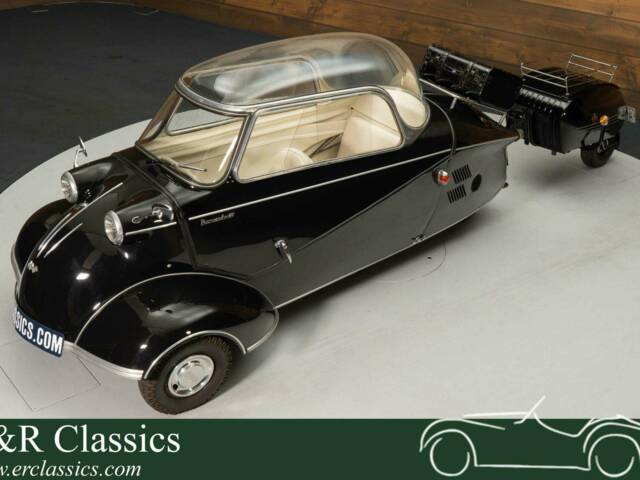
1961 | Messerschmitt / FMR KR 200
Oldtimer Messerschmitt KR200 | Gerestaureerd | Incl. aanhanger | 1961
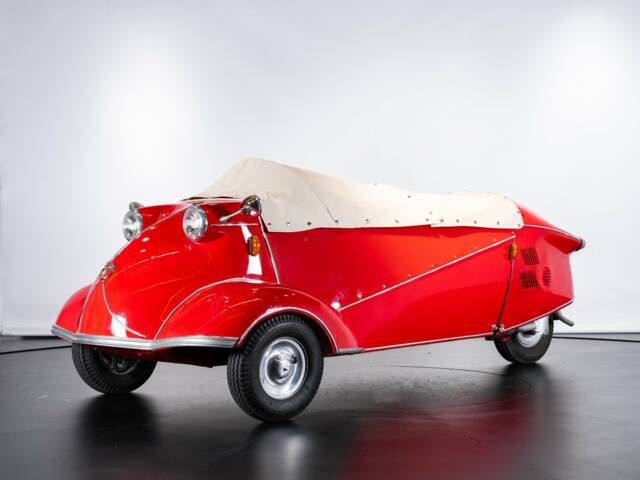
1959 | Messerschmitt / FMR KR 200
<p>PRESENTE PAD. 26 - FIERA BOLOGNA - 24-27 OTTOBRE</p>
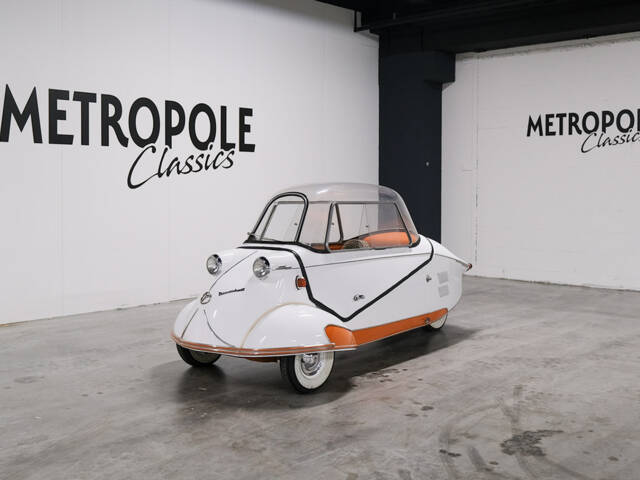
1954 | Messerschmitt / FMR KR 175
Messerschmitt FMR KR 175 M0344
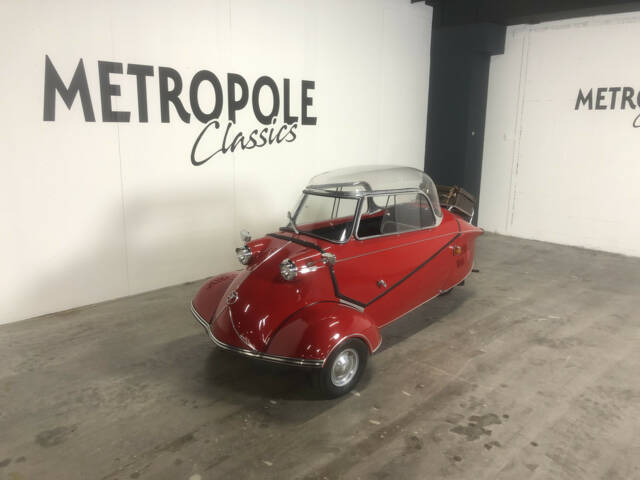
1955 | Messerschmitt / FMR KR 200
Messerschmitt KR200 1955 M0409
Introduction and History of the Messerschmitt Kabinenroller
Messerschmitt's Kabinenroller was born in a time of change in Germany. Originally inspired by aircraft construction, Messerschmitt, in collaboration with engineer Fritz Fend, ventured into the world of microcars. The KR175 marked the beginning, bringing a revolutionary vehicle concept to the roads: small, efficient, and easy to maneuver. The KR200, a masterpiece of aerodynamics, quickly captured the hearts of consumers. Each model reflected post-war German innovation, providing an affordable mobility solution. Today, KR models are not only testaments to creative design but also to practical utility and economic success in challenging times.
Features of the Messerschmitt KR Series
The Messerschmitt KR series stands out with its compact dimensions, unique tandem seating, and distinctive Plexiglas dome, giving the vehicle a futuristic look. Notably, the KR200 achieved impressive speeds up to 90 km/h due to improved aerodynamics and engine performance. Innovative features include a four-speed transmission that works both forward and reverse, and direct handlebar steering resembling more an aircraft than a car.
Messerschmitt also produced limited numbers of special "Service Cars," designed as tow cars for the automotive maintenance industry. These are extremely rare today and highly valued by collectors.
The KR series remains the most popular among Messerschmitt vehicles. With an offering of 89.4% compared to other Messerschmitt models, it showcases the historical and timeless appeal of the KR.
Technical Specifications
Buying Guide and Weaknesses
When purchasing a Messerschmitt Kabinenroller, buyers should focus on several key aspects. The Plexiglas dome is prone to cracking in certain areas and should be checked for damage. Corrosion is another common issue, especially on the floor panels and fittings. Replacement parts can be hard to find due to the low production numbers, but an active club scene offers support. The fan-cooled single-cylinder engine is robust but requires proper maintenance for reliable performance. Particular attention should be given to the dynastarter and drivetrain to avoid costly repairs.
Engine and Performance, Transmission and Driving Experience
The KR series features a remarkable design with an air-cooled single-cylinder two-stroke engine positioned in front of the rear wheel. The KR200 showcases the synergy of low weight, aerodynamic shape, and powerful engine technology, allowing for the reverse gear mechanism to reverse the engine's direction. This off-road capability and maneuverability are highlights of the KR models, making them especially attractive to collectors seeking an extraordinary driving experience.
Interior, Comfort, and Design
The interior of the Kabinenroller is characterized by a tandem seating arrangement, facilitated by the narrow architecture of the vehicle. The distinctive shape of the Plexiglas canopy offers fantastic all-around visibility, while the single-piece roof eases entry. Once seen as futuristic, the design now embodies the charm of a bygone era. Accessories and parts are scarce, making them particularly valuable and sought after during restorations.
Conclusion
The Messerschmitt Kabinenroller, a symbol of Germany's economic miracle, fascinates with its timeless design and technical innovations. Its history, marked by innovation and adaptability, makes it a valuable collector's item, appealing not only for its appearance but also for its historical significance.